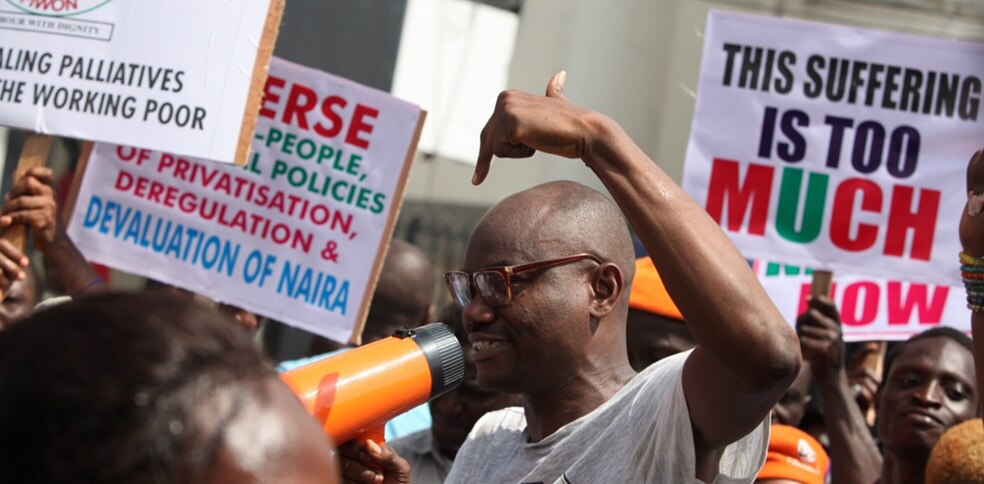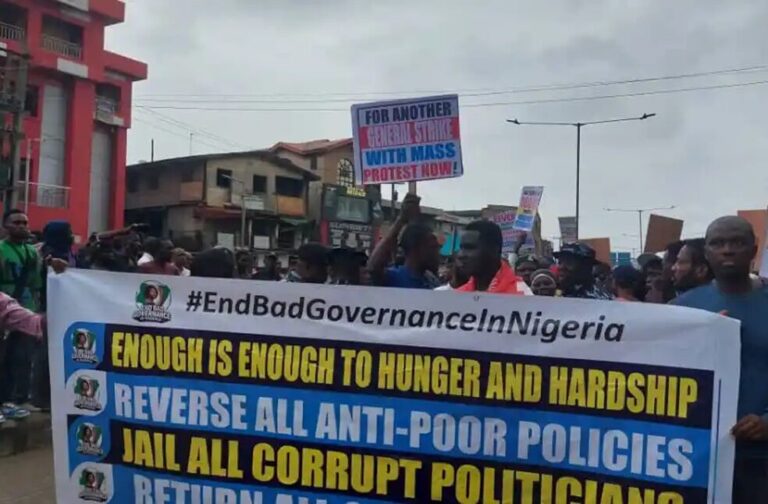Lagos: Nigerian troops and police have tightened security measures in Lagos and the capital, Abuja, as nationwide protests over the increasing cost of living. Nigeria, the most populated country in Africa is struggling with soaring inflation and a sharply devalued Nigerian Naira currency after President Bola Ahmed Tinubu’s economic reforms were introduced a year ago.
The protest movement, tagged #EndBadGovernanceInNigeria, has gained momentum through online campaigns among the Nigerians grappling with food inflation at 40 percent and tripled fuel prices since the implementation of Tinubu’s reforms.
On August 1st, clashes erupted as police deployed tear gas to disperse protesters in Abuja, while in Kano, demonstrators attempted to ignite bonfires outside the governor’s office, prompting a similar response from law enforcement.

In response to the unrest, security forces have blocked access to key areas, including Abuja’s Eagle Square, one of the planned protest sites. In Lagos, police and military personnel have been stationed at strategic locations, such as the Lekki toll gate.
In an effort to address the economic strain, the government announced relief measures including distributing grain to states and providing aid to the needy. Despite these efforts, markets across Nigeria have seen residents stockpiling essentials, reflecting fears of potential violence during the protests.
The protest organisers have presented a list of 19 demands, most importantly the removal of a state subsidy on petroleum products.
The protests in Nigeria follow recent unrest in Kenya, where President William Ruto faced pressure to repeal tax hikes and similar anti-corruption protests in Uganda.



